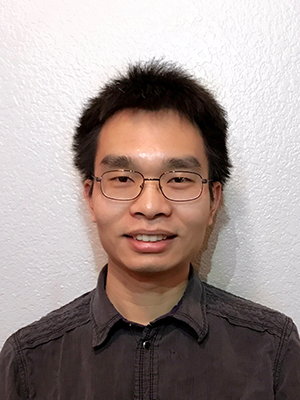USTC Astronomy Colloquium Series: 2023 Fall
Improving the Detection Sensitivity to Primordial Stochastic Gravitational Waves with Reduced Astrophysical Foregrounds
潘震 副教授
上海交通大学 李政道研究所
2024/01/02, 4:00pm , the 19th-floor Observatory Hall

报告人:
Dr. Zhen Pan is a junior faculty member at TDLI and DOA of Shanghai Jiao Tong University. He was a Zel'dovich fellow at Perimeter Institute from 2018 to 2023. He got his Ph.D at University of California at Davis under the supervision of Prof. Lloyd Knox. Zhen's current research interests are mainly on gravitational wave astrophysics: compact binary formation, merger and waveform modeling; detection of stochastic gravitational wave background; multi-messenger astrophysics.摘要:
One of the primary targets of third-generation (3G) ground-based gravitational wave (GW) detectors is detecting the stochastic GW background (SGWB) from early universe processes. The astrophysical foreground from compact binary mergers will be a major contamination to the background, which must be reduced to high precision to enable the detection of primordial background. In this talk, I will discuss the limit of foreground reduction computed in previous studies, point out potential problems in previous foreground cleaning methods and propose a novel cleaning method subtracting the approximate signal strain and removing the average residual power. With this method, the binary black hole foreground is reduced with fractional residual energy density below 10^{-4} for frequency f \in (10, 10^2) Hz, below 10^{-3} for frequency f \in (10^2, 10^3) Hz and below the detector sensitivity limit for all relevant frequencies in our simulations. Similar precision is achieved to clean the foreground from binary neutron stars (BNSs) that are above the detection threshold, so that the residual foreground is dominated by sub-threshold BNSs, which will be the next critical problem to solve for detecting the primordial SGWB in the 3G era, and I will also report our current working progress in this direction. 邮编:230026 ,
邮编:230026 ,  联系电话: 0551-63601861
联系电话: 0551-63601861 Email:
Email: